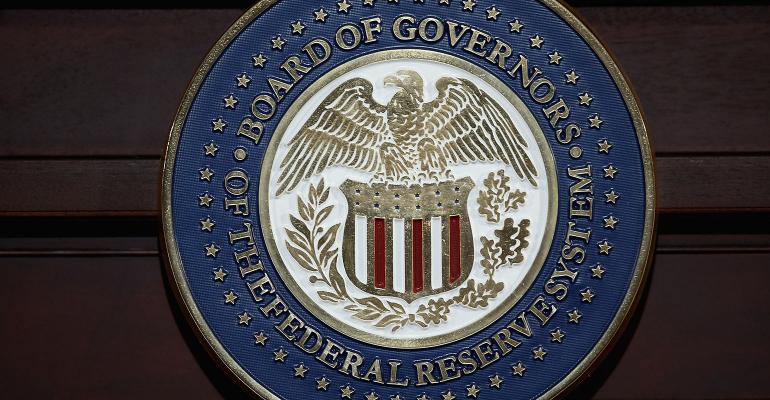By Ramesh Ponnuru
(Bloomberg View) --In selecting a chairman of the Federal Reserve, President Donald Trump should not be looking for a hawk or a dove. He should be looking for someone who is willing to play either role as circumstances warrant.
One of the top contenders for the appointment, Kevin Warsh, has proved he is right for only half the job. He has leaned toward tighter money in many different contexts: when the economy was about to collapse, when it was showing early signs of recovery, and now, when it is well into a slow expansion.
While on the board of the Fed, Warsh never dissented from any monetary-policy decision. But he was always a voice for higher interest rates and a smaller balance sheet, even as inflation generally fell during his time there. He registered concern about the threat of rising inflation at Fed meetings in 2006 and 2007. He kept up the drumbeat in 2008.
Even on the day after the collapse of Lehman Brothers, by which time market expectations of inflation had been falling sharply for nearly three months, he told his colleagues, “I’m still not ready to relinquish my concerns on the inflation front.” It was a worry that doubtless contributed to the Fed’s refusal to cut interest rates at that meeting. It took several more weeks of layoffs and financial panic before the Fed acted.
Inflation plummeted during the crisis, and by some measures would keep falling through the end of 2010. But already by April 2009, Warsh was back to sounding the inflation warning: “I continue to be more worried about upside risks to inflation than downside risks...." In September of that year, he gave a speech and wrote an op-ed arguing that the Fed could not wait to see an economic recovery before tightening policy.
In 2010, unemployment remained high, and inflation remained lower than the 2 percent annual rate that the Fed had long implicitly targeted. Both indicators, that is, still suggested monetary tightness. The Fed considered, and ultimately launched, a round of quantitative easing. Warsh cautioned against it, repeatedly. Inflation was once again a risk. In reality, core inflation came in at 2.1 percent for 2011 before falling again.
As high inflation repeatedly failed to materialize, Warsh stopped talking as much about it. After his time at the Fed, he started to emphasize other reasons for tightening monetary policy.
In 2013, he argued in two op-eds that by boosting economic conditions the Fed was reducing the incentive for Congress and politicians to undertake reforms. In 2014, the argument was that the Fed was enhancing asset values but not wages. By 2015 he was critiquing the Fed’s expansionary move during the crisis and recovery as an agent of economic inequality.
In my view, there is a strong case that the Fed’s excessively tight policy precipitated the crisis: It failed to cut interest rates rapidly and sharply enough and even talked them up during the first months of the recession. There is a case, as well, that the Fed remained too tight during the first years of the weak recovery -- failing, for example, to set a goal of reflation after the crisis.
Even if you don’t accept either view, though, you have to wonder whether Warsh -- as undoubtedly intelligent and knowledgeable as he is -- would be willing to do what it takes to fight a recession. You have to wonder, too, if his apparent inclination to look for reasons to tighten policy might cause one.
Warsh deserves enormous credit for engaging in public debate over monetary policy, and in a very candid way. But what he has revealed about his views and reflexes suggests reasons for doubt about whether his appointment would be in the country’s interest, or even President Trump’s.
This column does not necessarily reflect the opinion of the editorial board or Bloomberg LP and its owners.
Ramesh Ponnuru is a Bloomberg View columnist. He is a senior editor of National Review and the author of “The Party of Death: The Democrats, the Media, the Courts, and the Disregard for Human Life.”
To contact the author of this story: Ramesh Ponnuru at [email protected] To contact the editor responsible for this story: Katy Roberts at [email protected]
For more columns from Bloomberg View, visit bloomberg.com/view




